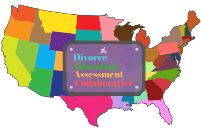Divorce Education Assessment Collaborative
The Divorce Education Assessment Collaborative (DEAC) is a standardized assessment tool for divorce education courses across the nation. There is pre and post tests of this assessment tool available, as well as content specific supplementary measures. Upon request, our team can customize the DEAC to better fit your specific programs needs.
Qualtrics Survey
What is on the survey?
Our pretest assesses the following topics:
- Perceived adjustment to the separation/divorce
- Custody satisfaction
- Current coparental relationship
- Coparental interaction
- Perception of current custody agreements
- Perception of financial agreements
- General demographic questions
- General questions about other coparent
- Option for both specific knowledge and supplemental constructs
Our posttest assesses the following topics:
- Perceived adjustment to the separation/divorce
- How this course might influence their future coparenting practices
- Experiences with the course
- Next steps in their coparenting process
- Option for both specific content knowledge and supplemental constructs
Knowledge Constructs:
- Process of divorce and breakup related changes
- Coparenting plans
- Communication
- Available resources
- Child development
- Children's coping post-divorce
Supplementary Constructs:
- Education demographics
- Military demographics
- Expectation of the course
- Frequency of arguments and hurtful words
- Boundary ambiguity for divorced adults
- Coparental communication methods
- Couple conflict
- Depression
- Coparental interaction
Purpose
Most states require families to complete divorce education programs to promote post-divorce family resiliency. However, since the growth and development began in the 1970s, programs vary greatly in content, timing, delivery method, and effectiveness. By having multiple programs, across several states, collect the same information with a standardized tool about participants, divorce education materials, and divorce-related behaviors, researchers and educators can lead with best practices in divorce education.
Goals
- Assist in evaluation of divorce education programs
- Provide a standard tool for divorce education programs
- Highlight partners who have successfully utilized the DEAC

